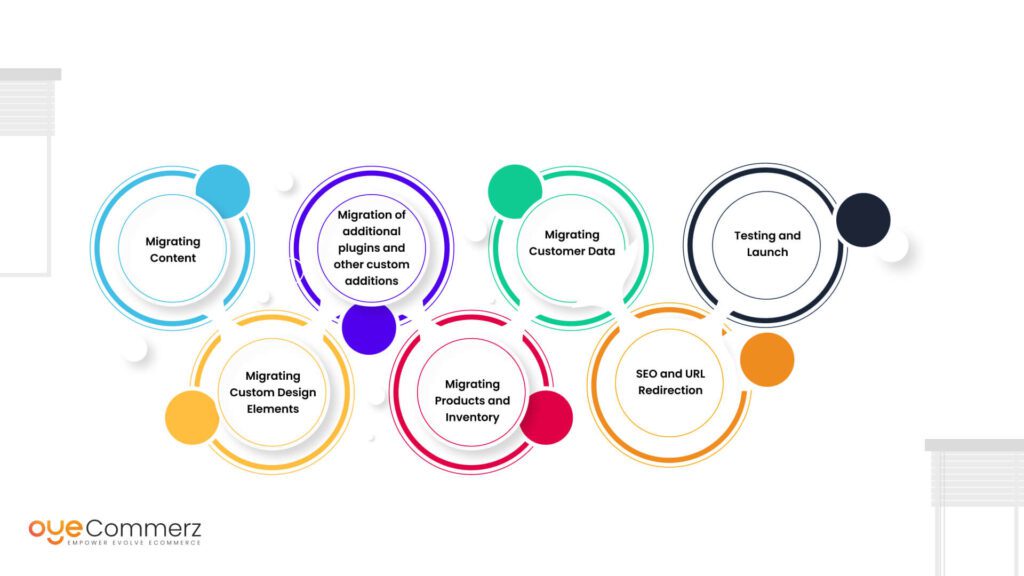In the dynamic sphere of digital commerce, selecting the best system is crucial for your brand’s growth. If you’re presently using WordPress and planning a migration to Shopify, you’re not alone. Countless businesses are making this transition to utilize Shopify’s robust features, ease of use, and scalability. This guide will walk you through the process of migrating from WP to Shopify seamlessly, making sure that you achieve your online retail potential.
Why Migrate from WordPress to this platform?
Ahead of exploring the migration procedure, it’s essential to know why this transition can be beneficial for your digital storefront:
User-Friendly Interface: Shopify offers an straightforward interface that streamlines store handling, enabling for non-technical users.
Growth Potential: As your company expands, Shopify can handle increased traffic and transactions without affecting speed.
All-in-One Solutions: Shopify provides integrated features for SEO, analytics, payment management, and more, reducing the requirement for numerous plugins.
Robust Protection: With Shopify, you get access to robust security measures that safeguard critical customer details.
Steps for a Effortless Migration
Migrating your eCommerce site from WordPress to Shopify includes key phases.
Here’s steps to facilitate a smooth transition:
Plan Your Migration Approach
Start by drafting your migration blueprint. Decide on which components of your present site you want to move, such as:
Product data
Client data
Purchase logs
Blog content
Choose the Right Migration Option
Depending on your preferences, select a migration plan that fits your eCommerce goals. Migration experts provides multiple Shopify migration cost overview choices:
Starter Package: Perfect for small stores with fewer products.
Standard Migration Package: Appropriate for growing businesses with more complex demands.
Advanced Plan: Best for big stores requiring extensive customization.
Backup Your Data
Before beginning the migration, ensure that you have a full archive of your WordPress site. This action is critical in case anything goes awry during the move.
Extract Your Content from WP
Use extensions or alternative solutions to transfer key information from your WP site:
Products
Users
Orders
Blog posts
Import Information into Shopify
After you have your information Shopify business scalability exported, employ Shopify’s built-in features or specialized apps to upload your information into your updated store. Confirm that all data is properly organized and arranged.
Customize Your Shopify Store
After importing content, adjust your Shopify site’s theme to align with your brand identity. Consider working with a developer if you need detailed customization.
Set Up Payment Gateways and Shipping Options
Arrange transaction methods and shipping settings in Shopify to create a smooth transaction experience for customers.
Implement SEO Best Practices
To maintain your online visibility during the migration:
Use 301 URL mappings from old URLs to new ones.
Update descriptions.
Optimize media and copy for SEO.
Evaluate Your New Store
Prior to publishing, extensively review your Shopify store. Identify any broken links, payment processing issues, or missing data.
Launch Your Store
Once everything is in ready, it’s the moment to publish! Announce the change to your clients and encourage them to experience the enhanced offerings of your Shopify store.
Post-Migration Guidance
Even after launching your new store, ongoing support is essential. Explore working with professionals who can assist with:
Site maintenance
Promotional campaigns
Performance optimization
Conclusion
Migrating from WordPress to Shopify can be a game-changing move for your eCommerce. By following this guide and utilizing tools like those offered by industry leaders, you can ensure a smooth transition that boosts your business potential. Accept the shift and realize the potential of Shopify today!

Comments on “Unlocking digital commerce Achievements: The Comprehensive Guide to Smooth WordPress to Shopify Migration”